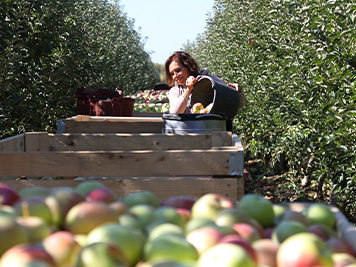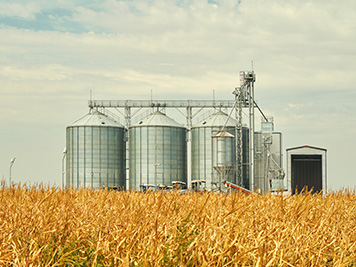The agriculture industry is facing a multitude of challenges, including climate change, water scarcity, and market volatility, and now, inflation has emerged as a significant concern. The rising cost of inputs like feed, fertilizers, fuel, labor, etc., can make it difficult for farmers to make a profit. This trend can also lead to food inflation, which can be detrimental to both farmers and consumers. It’s an important topic to understand because it can have a significant impact on food prices and the future of the industry.
Surging food and feed prices
Supply-chain constraints and staffing problems are leading causes of higher prices for products and supplies, especially food. U.S. inflation hit its fastest pace in four decades in 2022. According to the Labor Department and Department of agriculture, food prices rose by 25% from 2019 to 2023 as meat and egg prices surged well beyond the norm.
The price of animal feed has also been on an upward trend due to the rising cost of grains such as corn and soybeans. Since 2020 the total costs paid by farmers to raise crops and care for livestock increased by more than $100 billion, or 28%, to an all-time high of $460 billion in 2023. This increase can affect the value of crops stored for a long time. If the price of the crop decreases due to inflation, the farmer may suffer significant losses.
Equipment value and costs
Inflation also affects the cost of equipment used in agriculture such as tractors, harvesters, and irrigation systems. As the prices of these machines rise, so does the cost of production, which affects the closing price of agricultural products for the consumers.
The cost of equipment bought before the inflationary period is also affected. For example, if a farmer buys a piece of equipment before inflation sets in, the value of that equipment will decrease as the purchasing power of money declines. This can significantly impact the farmer's financial health, especially if they have taken a loan to purchase the equipment.
Impact on the insurance market
When it comes to the impact of inflation on the insurance market for agriculture businesses, it is no shock that it is taking hits as well. Inflation here can lead to:
- Higher insurance premiums
- Reduced coverage
- Changes in insurance products
- Lower value of insurance payouts
- Increased demand for insurance
The impact of inflation on the insurance markets is most prevalent in maintaining infrastructure and a top concern has been the cost of rebuilding facilities. This cost has skyrocketed in recent years. When you compound that with a constricting property market, it causes problems with rates, limits, and structure. For example, in a three-year period, the cost of building a controlled atmosphere storage facility has risen by 35%–40%.
Working with a trusted broker is key
Agribusinesses should be aware of these impacts and work closely with their insurance providers to ensure they have adequate coverage and protection against the risks associated with inflation. Insurers, in turn, should have extensive industry knowledge. Local Marsh McLennan Agency brokers can find your business creative, unique, and proprietary solutions with our vast global network and resources.
To learn more about the agriculture industry and inflation trends, reach out to a Marsh McLennan Agency representative today.



